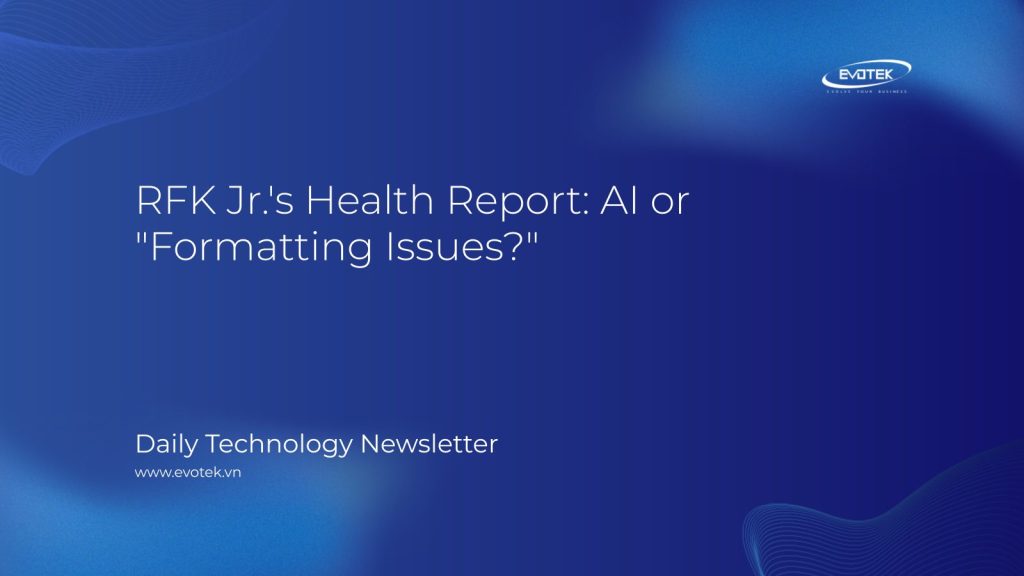Robert F. Kennedy Jr.’s “Make America Healthy Again” (MAHA) report is under scrutiny following the discovery of numerous citation errors. Some are suggesting that these errors point to the use of AI, specifically ChatGPT, in the report’s creation.
An investigation by NOTUS revealed broken links, incorrect issue numbers, and missing authors within the MAHA report. Alarmingly, at least seven cited sources appear to be entirely fabricated.
The Washington Post’s analysis further highlighted the issue, finding that 37 out of 522 citations were repeated and, critically, some URLs contained “oaicite,” a marker used by OpenAI to identify responses from AI models like ChatGPT. This discovery strongly suggests AI involvement in the report’s development.
Generative AI’s tendency to produce false information, known as “hallucinations,” could explain the citation errors. RFK Jr. has previously expressed enthusiasm for the “AI revolution” and its potential in healthcare data management.
In response to the concerns, Press Secretary Karoline Leavitt attributed the errors to “formatting issues,” avoiding any mention of AI tools. She defended the report as being “backed on good science.”
Following the scrutiny, the MAHA report was updated to remove some “oaicite” markers and replace nonexistent sources. According to a Department of Health and Human Services spokesman, these were “minor citation and formatting errors,” and the report’s core message remains unchanged.
The controversy raises questions about the integrity of the MAHA report and the role of AI in its creation. The debate continues about the true cause of the issues and the implications for the report’s findings.
Keywords: RFK Jr., Make America Healthy Again, AI, ChatGPT, citation errors, health report, Karoline Leavitt, OpenAI, oaicite, Robert F. Kennedy Jr.

 日本語
日本語 한국어
한국어 Tiếng Việt
Tiếng Việt 简体中文
简体中文